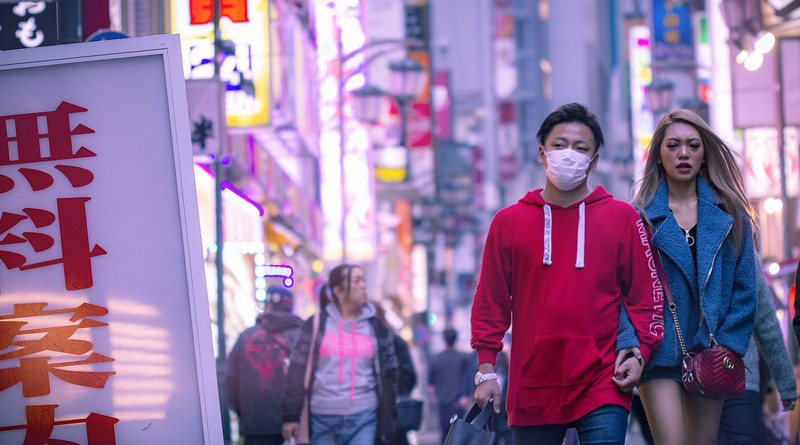The Russia–Ukraine Crisis And Japan’s Energy Dilemma – Analysis
By Wrenn Yennie Lindgren*
The war in Ukraine is a game changer not only disrupting financial markets and human migration patterns but also the global energy landscape. As European countries announce their plans to phase out and divert energy imports from Russia, the question of how to make up the difference looms large. One solution is to increase energy independence through a greater shift to more renewables.
In East Asia, Japan also finds itself in a heightened energy dilemma. A resource poor island nation with one of the lowest energy self-sufficiency rates in the OECD of 11.2 per cent in 2020, Japan is particularly vulnerable to shocks in global energy markets. With EU states’ energy policies in flux after Russian President Vladimir Putin’s invasion, it is uncertain if Japanese policymakers and voters are committed to shifting away from nuclear power and redoubling efforts to reduce fossil fuel usage.
After nearly a decade of energetic diplomacy between former Japanese prime minister Shinzo Abe and Putin that resulted in few concrete outcomes, it is clear that Japan–Russia relations are entering a new phase, defined by sanctions and distance from longstanding discussions on the territorial dispute over Japan’s northern territories. While Prime Minister Fumio Kishida has been explicit about where Japan stands on the issue of territorial integrity in light of Russia’s invasion of Ukraine, exactly how Tokyo plans to handle the renewed energy dilemma it faces is still under deliberation.
In a departure from Japan’s reluctance to impose sanctions in the aftermath of Putin’s annexation of Crimea in 2014, the Ministry of Foreign Affairs was quick to announce a list of measures to counter Russia, including suspending economic cooperation projects. But none of the measures to date concern Japan’s energy reliance on Russia, Tokyo’s fifth-largest supplier of crude oil and liquified natural gas.
Top representatives in Japan’s Ministry of Economy Trade and Industry (METI) have made it explicit that they are opposed to energy sanctions of any kind. And Kishida has voiced his reluctance to pull out of the Sakhalin liquid natural gas projects, since they provide ‘long-term, inexpensive and stable supplies’.
Yet Kishida has also committed to reducing energy dependency on Russia. Tokyo’s concern about severing Russian imports stems not only from fear of spill over effects on industry and livelihoods, but also from realpolitik thinking — disruption for Japan could be an opportunity for rivals. As former METI minister Hiroshige Seko stated, ‘countries like China who are desperate for liquid natural gas would get it cheaply’. Japan is also wary of how Putin’s invasion has put China in an advantageous geopolitical position by distracting attention from prominent security issues and flashpoints in East Asia.
Japan has aspirations for a significant ‘green turn’ in the coming decades. The latest national strategic energy plan aims to double renewable energy by 2030 and to shift reliance on fossil fuels to hydrogen. Renewable energy has been undergoing steady growth in the Japanese market, accounting for roughly 20 per cent of Japan’s electricity production in 2020.
The war in Ukraine has led to renewed momentum for Japan to accelerate investment in energy efficiency, electrification and renewables, which are being proposed as a solution to the global energy market turmoil. In particular, the promise of offshore wind power has been touted as a remedy for Japan’s growing dependence on coal, but the feasibility of transmitting such energy from offshore facilities to major cities remains a challenge.
In light of the Russia–Ukraine war, discussions are also taking place over how to protect Japan’s remaining 17 nuclear plants from attack, and the potential for restarting more reactors. Japan’s ruling Liberal Democratic Party continues to lobby for more nuclear energy, arguing that it would increase self-sufficiency, ease costs and secure stable procurements. But its coalition partner, Komeito, favours abolishing nuclear power and is instead calling for a new economic package to combat inflation and soaring oil prices. Promoting economic stimuli is likely to bode well with the Japanese public, given their waning support for nuclear power.
With the global energy landscape in flux, how the war in Ukraine will influence the transition away from fossil fuels and shape the international order over the long-term will be of central importance. Unlike Europe, Japan is less reliant on Russian markets and is arguably in a better position to gradually decouple from Russian energy, though Tokyo remains hesitant to significantly alter reliance on Russian energy in the short-term. While momentum to find alternative sources has been accelerated by the war, challenges remain. Not even a crisis as devastating as Ukraine is enough to suddenly kickstart Japan’s aspirations for energy self-sufficiency into reality.
*About the author: Wrenn Yennie Lindgren is a Senior Research Fellow at the Norwegian Institute of International Affairs (NUPI) and an Associate Research Fellow at the Swedish Institute of International Affairs (UI).
Source: This article was published by East Asia Forum

